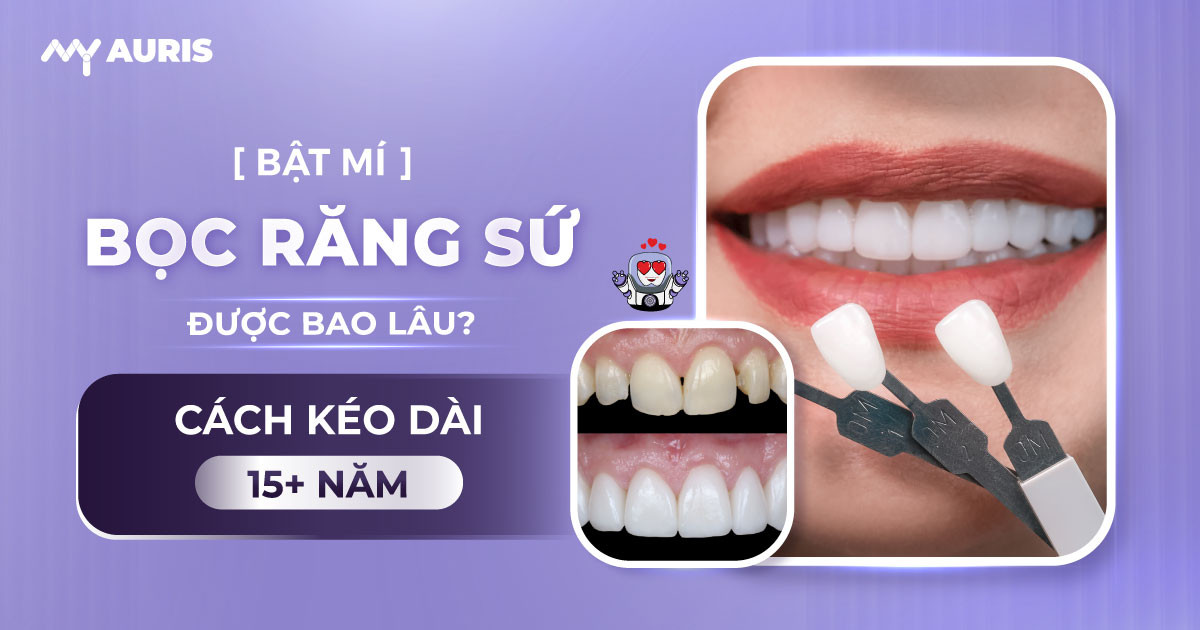How long do porcelain crowns last? Are porcelain crowns durable? These are common questions many people ask before deciding to get dental crowns. In reality, the lifespan of porcelain crowns varies depending on the type of material. Each type of porcelain crown has its own usage time, which depends on its quality and structure. Furthermore, the durability of porcelain crowns is also significantly influenced by the crowning technique, the skill of the highly qualified dentist, and the modern equipment used during the treatment process. Therefore, to ensure that porcelain crowns last a long time and remain strong, choosing a reputable dental clinic with a skilled dentist is a crucial factor that cannot be overlooked.
What Are the Benefits of Dental Crowns?
The dental crowning technique is prescribed by dentists for patients with tooth imperfections such as chipped or broken teeth, gaps between teeth, diastema, misaligned teeth, or antibiotic-stained teeth. This method offers many significant benefits, helping to correct tooth imperfections like overbites, underbites, crooked teeth, discoloration, and minor gaps, thereby creating a more perfect smile.
Additionally, dental crowns offer good durability and high strength, ensuring effective chewing function after treatment. This technique also provides maximum protection for natural teeth, especially in cases of decayed teeth, chipped/broken teeth, or teeth that have undergone root canal treatment. Furthermore, patients have a wide range of options with various types of porcelain and many natural shades to suit their aesthetic needs. The reasonable cost also makes this method suitable for diverse groups of individuals.
However, the dental crowning technique also carries many potential risks if not performed correctly. Improper tooth preparation or touching the pulp chamber can lead to prolonged tooth sensitivity, pain, and even damage to the natural tooth. Poor quality crowns also reduce treatment effectiveness; for example, a dental bridge that is too rigid or of substandard quality can cause wear on opposing teeth, while poor quality porcelain can also irritate the gums.
Therefore, choosing a reputable medical facility that provides good quality porcelain crowns with clear origins is crucial to ensure safety and effectiveness when undergoing dental crowning. This is a key factor to help patients avoid undesirable risks and maintain long-lasting results.
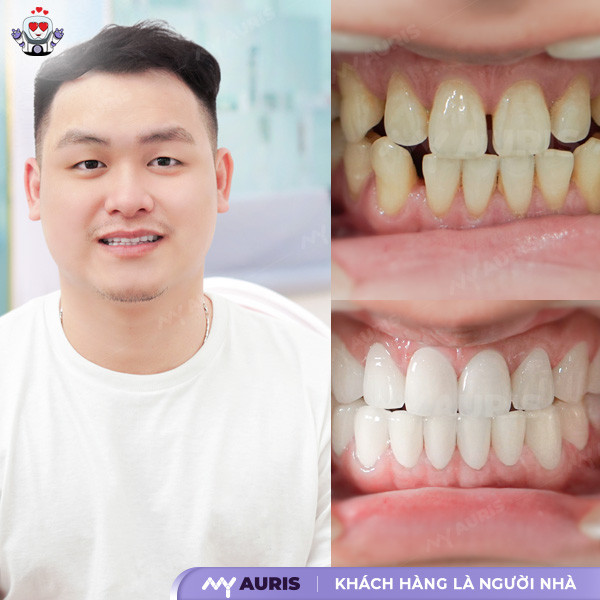
How long do porcelain crowns last before needing replacement?
This is a question many people are concerned about when deciding to get porcelain crowns. In reality, how long crowned teeth last depends on various factors such as the porcelain material, the crowning technique, and each person’s oral hygiene and dental care habits. The durability of porcelain crowns is not permanent, but if you maintain proper oral hygiene habits, the lifespan of your crowns can be quite long.
According to medical reports, the lifespan of porcelain crowns can be up to 20 years if meticulously cared for. However, there are also cases of complications after dental crowning, leading to earlier replacement than expected. Therefore, there is no specific answer to how long porcelain crowns last, as it depends on individual circumstances. Each patient will have a different usage time for their crowns based on their health conditions and oral protection practices.
How long do porcelain crowns last before failing? Are porcelain crowns permanent?
How long porcelain crowns last before failing depends on many determining factors, such as where you get your dental crowns, what porcelain material you choose, and whether your existing tooth condition meets the standards for crowning.
Dental crowning is an effective solution for tooth restoration, helping to restore dental aesthetics and chewing function for damaged teeth. However, the durability of porcelain crowns cannot last permanently as many rumors suggest. According to research and professional reports, the lifespan of porcelain crowns can be up to 20 years if properly cleaned and cared for. With appropriate care measures, the lifespan of a dental bridge will be quite long and durable.
Nevertheless, there are still cases of adverse complications after crowning, often due to poor quality crowns, inadequate dentist skills, or improper oral hygiene. Therefore, the usage time of porcelain crowns is very difficult to determine specifically for each individual.
If your dental bridge is damaged, you should visit the dentist immediately for an examination and replacement of the porcelain crown when necessary, ensuring effective restoration and long-term oral health protection.
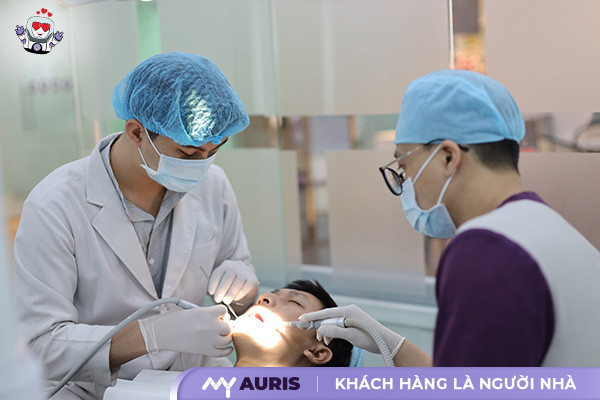
[Revealed] How Long Until Porcelain Crowns Need to Be Redone?
The lifespan of porcelain crowns depends on many crucial factors such as oral health status, the quality of the porcelain used, the dentist’s skill, and daily oral care practices.
Normally, if the porcelain material has a clear origin and is treated by a specialist with solid expertise and extensive experience, the lifespan of porcelain crowns can extend from 8 to 10 years. Especially when using premium all-ceramic crowns combined with a good oral care regimen, the usage time can be up to 20 years.
The Most Durable Types of Porcelain Crowns Today
When asking how long porcelain crowns last before needing to be redone, a crucial factor in extending the lifespan of dental crowns is choosing a good quality crown. Below are the most popular and durable types of porcelain crowns currently available:
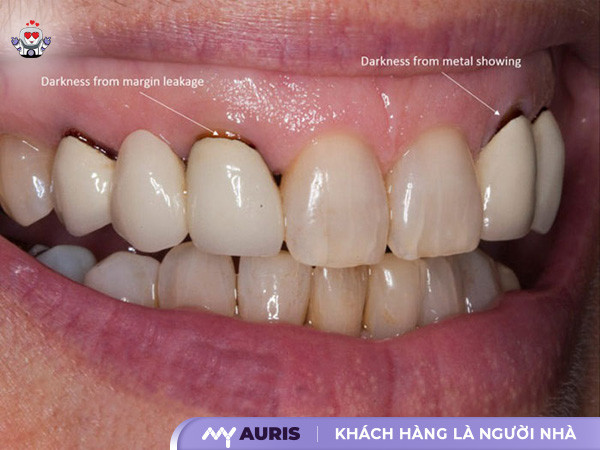
Metal-Ceramic Crowns
Metal-ceramic crowns are the earliest type of porcelain crowns, featuring a framework made from Ni-Cr or Co-Cr alloys, covered with a layer of white porcelain to mimic the appearance of natural teeth. These crowns are cost-effective, making them suitable for many individuals. Popular types include conventional metal-ceramic crowns, precious metal-ceramic crowns, and Titanium crowns.
However, because the crown framework is made of metal, oxidation can easily occur on the tooth surface during use due to the acids in the mouth. This leads to tooth discoloration, darkening of the gum line, and when light shines on it, the metallic dark color inside becomes visible. The average lifespan of metal-ceramic crowns ranges from 5 to 7 years.

All-Ceramic Crowns
Unlike metal-ceramic crowns, non-metal porcelain crowns, also known as all-ceramic crowns, have an internal framework and an outer enamel layer both made from 100% pure ceramic, containing no metal alloys. This ensures that the crowns do not cause irritation, while maintaining a natural tooth-like appearance and long-lasting color.
Popular types of all-ceramic crowns today include Cercon HT, Zirconia, Zolid, and Nacera crowns. With a strength of 800 – 1600 MPa, if you maintain proper oral hygiene, the lifespan of all-ceramic crowns can extend up to 20 years or more. This option offers many superior advantages in terms of durability and aesthetics compared to metal-ceramic crowns.
Measures to Extend the Lifespan of Dental Crowns
How long dental crowns last largely depends on the measures you adopt to extend their lifespan. To achieve a long lifespan for porcelain crowns and maintain high aesthetics, the following important factors should be noted:
Choose High-Quality Porcelain Material
Choosing high-quality porcelain material significantly determines the lifespan of dental crowns. Especially for decayed or chipped teeth, you should prioritize all-ceramic crowns because this type offers superior durability, with a lifespan of up to 20 years, while also helping to maintain high aesthetics for a long time.
Choose a Dentist with Excellent Porcelain Restoration Skills
The dentist’s restoration technique directly affects the durability of porcelain crowns. A skilled and experienced dentist will perform tooth preparation at an appropriate ratio, ensuring no damage to the tooth pulp and no exposure of the tooth root, thereby helping the porcelain crowns last longer.
Completely Treat Oral Diseases Before Getting Dental Crowns
Before proceeding with dental crowning, patients need to completely treat any existing oral diseases such as gingivitis, periodontitis, or pulpitis. Thorough treatment of these conditions helps protect natural teeth, ensuring they remain strong and capable of chewing effectively long after crowning.
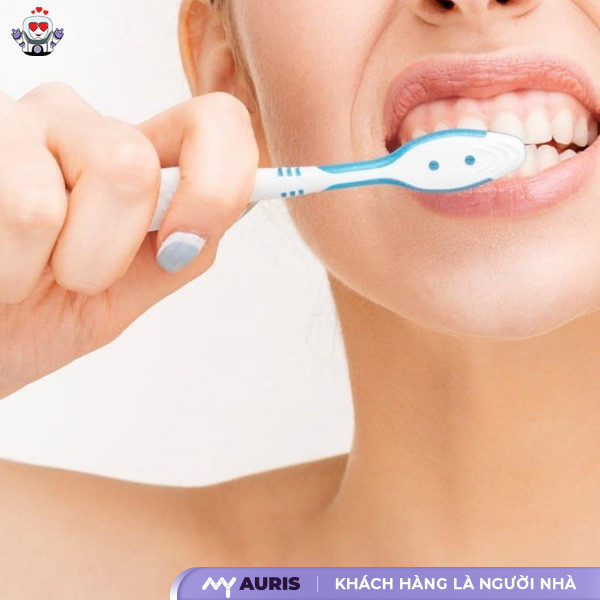
Maintain Proper Oral Hygiene as Instructed
Caring for porcelain crowns after crowning is the most important measure to extend the lifespan of crowned teeth and prevent complications. Patients need to pay attention to:
- Avoid consuming excessively chewy or hard foods, as this can reduce the durability of the crowns and even cause them to crack or break;
- Supplement nutrients beneficial for teeth such as calcium, vitamins, and minerals from vegetables, eggs, fish, and milk;
- Avoid teeth grinding, clenching, or nail-biting;
- Attend follow-up appointments as scheduled by your dentist to check the quality of your porcelain crowns and detect any abnormal oral health issues early;
- Get professional dental cleaning (scaling) every 6 months, brush your teeth twice a day, and use dental floss and mouthwash for effective tooth cleaning.


